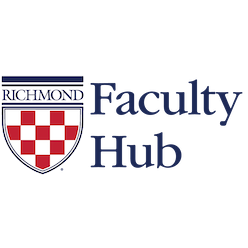The 2024 U.S. presidential elections are just under three weeks away, and you may be thinking about your role as a professor and how best to support students during this time.
There’s no universal solution to approaching election-related issues in class. Context plays a vital role, with considerations like the courses you’re teaching, the dynamics of your class, and your own teaching style all coming into play. However, we know from experience that students often look to faculty members when circumstances outside of the classroom may be affecting the classroom experience. Research suggests that students generally appreciate when professors address major local and global events rather than remain silent (Houston & DiPietro, 2007).
That being said, your approach to the upcoming elections doesn’t have to take the shape of a traditional in-class discussion. What’s more, you don’t have to wait until after the elections to acknowledge the current context. In fact, interactions and conversations after the elections will likely be much more productive if you prepare for them beforehand.
Keeping these things in mind, I’m sending along some suggestions and resources you might wish to explore.
To prepare your students for the coming weeks:
- Encourage students to exercise their rights at the polls. The CCE offers an excellent voting guide to help students navigate this topic.
- Foster community and acknowledge your students’ experiences. If you haven’t already done so, establishing community guidelines or agreements can pave the way for constructive conversations and give you a tool when you encounter tense moments in class.
- Express care and share resources. Even if your course content doesn’t directly relate to the elections or you’re not comfortable discussing the topic in any depth, you might acknowledge that students may be experiencing strong emotions and express care and concern for their well-being. Consider directing them campus resources like CAPS.
- Make space for reflection. Before or immediately after the elections, you could devote some class time to reflection even without facilitating a discussion. This might include written exercises, deep breathing, meditation, or a brief period of silence to honor the emotions some students may be experiencing.
- Encourage your students to participate in campus events that focus on discussing differences and navigating diverse perspectives. The Sharp Viewpoint Series and the Learning Together Series are two examples; the CCE also has multiple events for students related to the 2024 Elections.
If you feel ready to discuss the elections with your students before or afterward:
- Come to our upcoming Hub Talk with Professors Janice Craft and Dan Palazzolo on Dialogue Across Difference in the Classroom on Thursday, Oct. 17 from 12:00-1:00pm. They will each discuss how they are incorporating what they learned at the Citizens & Scholars Faculty Institute into their teaching this fall.
- Give students advance notice. Some might not be prepared to engage yet or feel exhausted by discussions in other classes. If appropriate, consider allowing students the option to sit out of discussions if they’re not ready to participate.
- Lean on resources. Check out the resources below, and if you’d like to discuss your thoughts or strategize with someone, please feel free to reach out to our staff for a one-on-one consultation—we’re here to support you before and after the elections…and beyond.
Finally, you may be processing your own feelings during this period as you carry the emotional weight of supporting your students. If you find yourself needing support, you could explore the resources available on HR’s Employee Well-Being site.
Please read on for additional offerings.
Resources
For those facilitating discussions on the elections, you might explore some or all of the following:
Offerings from the Faculty Hub and Others
Tipsheets:
Events:
